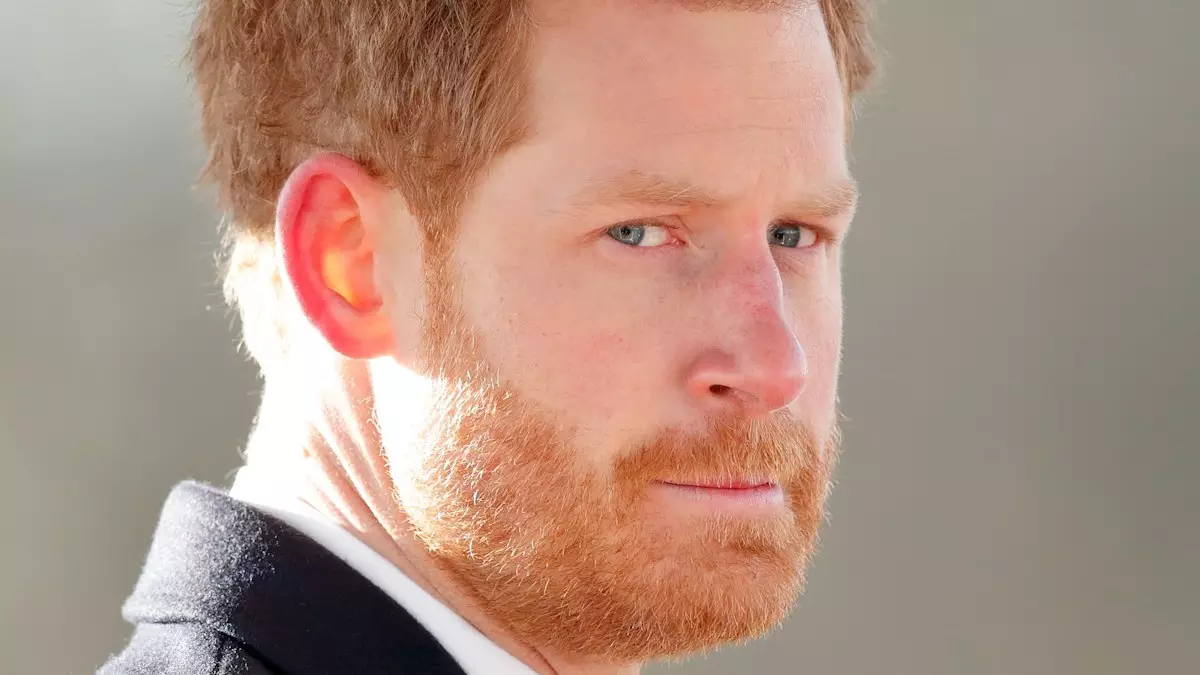Recently, the media landscape has buzzed with news surrounding Prince Harry’s legal confrontations with Rupert Murdoch’s News Group Newspapers (NGN). The Duke of Sussex, who has made serious allegations against the tabloid giant, is embroiled in a lawsuit that addresses unlawful information gathering practices. Although Harry initially indicated plans to attend the trial in London, he has decided against it for this week, pivoting instead to testify later in February 2024. This decision sheds light on the complexities of his legal journey, underscoring significant themes of privilege, accountability, and the fight against media misconduct.
Harry’s lawsuit represents a larger narrative of the media’s ethical erosion, primarily spotlighting claims that NGN engaged in nefarious tactics, including phone hacking and breaching privacy rights. Allegedly occurring between 1996 and 2011, these actions have led Harry to pursue legal avenues to hold NGN accountable. While NGN has flatly denied the accusations, insisting on its innocence, Harry remains fiercely committed to his quest for justice. He has emphasized that his fight is not merely a personal one but a necessary endeavor to restore public trust in journalism that has been undermined by the actions of tabloid reporters.
During a recent address at The New York Times’ DealBook Summit, Harry articulated a hope that genuine journalism can be preserved and protected. He stated, “I will be damned if those journalists are going to ruin journalism for everyone because we depend on it.” His personal commitment is symbolic of a broader struggle to reclaim integrity within the media industry, which has faced increasing scrutiny over ethical standards.
Harry’s case does not exist in isolation; it is parallel to a series of high-profile lawsuits involving celebrities who have also sought justice against NGN. Many, such as actors Hugh Grant and Sienna Miller, have opted for settlements rather than endure the arduous process of a trial. Hugh Grant’s experience in particular illustrates a disheartening trend in the fight against media exploitation. In an impassioned social media post, he discussed the irony of being offered significant financial compensation to silence his claims against the very paper he alleged breached his privacy—a cynical reflection on the media’s ethics and the questionable tactics employed by powerful corporations.
This judicial landscape presents daunting challenges for those pursuing their cases against NGN. Legal risks loom large, as settling often becomes the path of least resistance, despite a yearning for accountability. In contrast, Harry’s resolute decision to carry on with his case speaks volumes about his determination to stand up against what he perceives as systemic wrongdoings, even in the face of formidable opposition.
Complicating Harry’s legal battles is his contentious relationship with the British royal family, particularly regarding matters of security. Since stepping back from royal duties in 2020, Harry and his wife Meghan Markle have faced losses—including the revocation of their automatic right to taxpayer-funded security while in the UK. This issue has become acute, prompting Harry to engage in legal proceedings regarding security provisions to safeguard his family. The current standoff has reportedly included an offer from King Charles for Harry to stay at Buckingham Palace during his visit, which it appears Harry chose to decline, reflecting ongoing tensions within the family.
Amid legal disputes over security, Harry’s commitment to facing media giants highlights the vulnerability of public figures against invasive journalistic practices. This concern extends not just to himself but to his wife and children, Archie and Lilibet. Harry’s efforts are underscored by genuine fears for their safety and privacy, giving an emotional weight to his legal endeavors.
Prince Harry’s ongoing battle against NGN epitomizes a wider struggle for accountability in a media landscape rife with ethical challenges. Through his legal pursuits, he aims to ignite a necessary conversation about transparency and integrity—so crucial for the restoration of public trust. As he prepares to take the stand in February 2024, he embodies a determined figure advocating for justice—not solely for his plight but for a collective ideal of responsible journalism. In this convoluted saga, Harry’s narrative sheds light on the interplay between celebrity, privacy rights, and the relentless pursuit of truth, hoping to carve out a more accountable future for journalism.


Leave a Reply